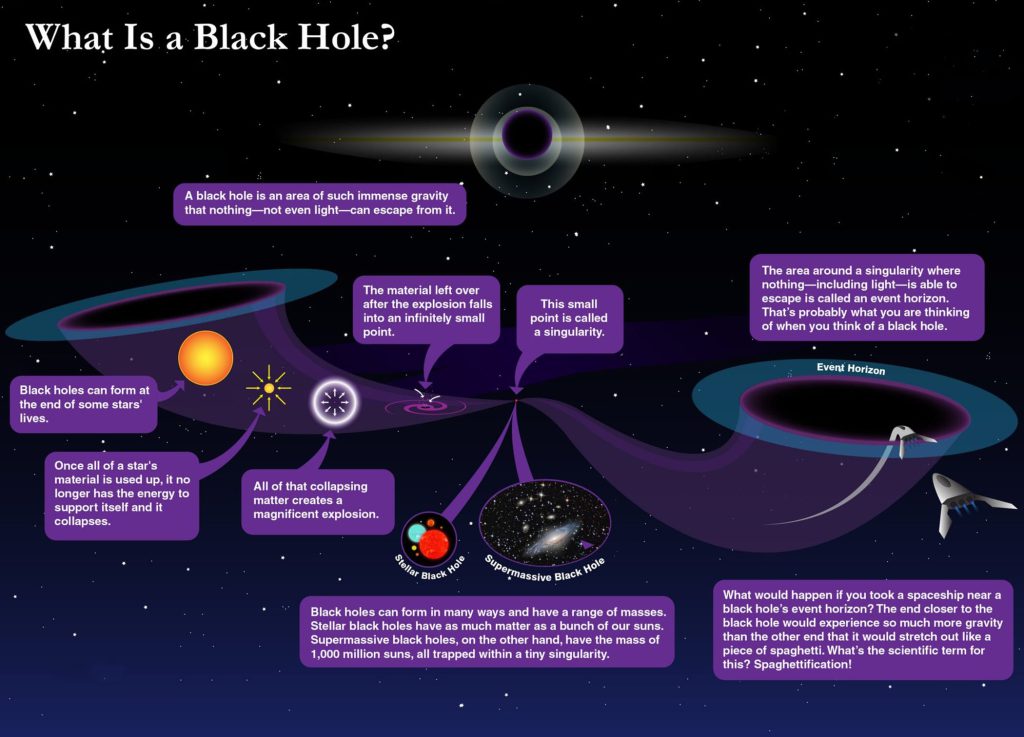Editor: Draco Copper | Tactical Investor
Navigating the Unknown: Exploring Black Holes in Space and the Dynamics of Financial Markets
Updated July 28, 2023
We uncovered that our readers responded passionately to the notion of us sharing excerpts from captivating articles. Adhering to this theme, we present a piece that captivates your interest. Our coverage spans a broad spectrum of subjects, as the current financial landscape demonstrates intricate interconnectedness. In the realm of Crowd Psychology, it’s akin to focusing solely on a single tree while neglecting its existence within the vast forest.
No individual can claim absolute mastery of the markets, and those who assert such a title should be treated cautiously. A prime illustration is the post-QE era, which ushered in a paradigm shift where long-standing indicators lost effectiveness due to an irreversible shift in the operational landscape. The markets encountered an unprecedented upheaval, propelled by a determined Federal Reserve intent on dismantling any remnants of free market influence.
This unforeseen development took everyone aback, even catching us off guard initially. Numerous self-proclaimed experts struggle to concede errors or the potential for fallibility. The Duel of Bull Markets and Bear Markets: A Clash of Hubris. Bull Markets Vs Bear Markets & Arrogance
The Enigma of Black Holes in Space
Black holes in space are one of the universe’s most fascinating and enigmatic phenomena. They are regions of space where gravity is so strong that nothing, not even light, can escape their pull. This makes them invisible to the naked eye, and they can only be detected through their effects on nearby matter and light.
The concept of black holes comes from Albert Einstein’s theory of general relativity, which predicts that a massive star leaves behind a small, dense core when it dies. If this core is more than about three times the mass of the sun, the force of gravity overwhelms all other forces and causes it to collapse into a single point known as a singularity. Around this singularity is a spherical boundary known as the event horizon, beyond which nothing can escape the black hole’s gravitational pull.
What Black Holes Teach Us
Black holes in space are not just fascinating objects in their own right, but they also provide us with valuable insights into the nature of the universe. For instance, the study of black holes has confirmed many general relativity predictions, such as the existence of singularities and the bending of light by gravity.
Moreover, black holes are thought to play a crucial role in the evolution of galaxies. The supermassive black holes found at the centres of galaxies are believed to influence the formation of stars and the distribution of matter in the universe. They may also be responsible for the powerful jets of energy and matter observed in active galaxies.
The Dangers of Black Holes
While black holes are fascinating, they also pose significant dangers. If an object gets too close to a black hole, it can be pulled in by its gravity and stretched into a long, thin shape in a process known as spaghettification. This would be fatal for any living creature and would destroy any spacecraft.
However, the chances of this happening are extremely low. Black holes are uncommon, and the nearest known black hole to Earth is over 1,000 light-years away. Furthermore, even if you were to approach a black hole, you would have to get very close to the event horizon before you would be in danger of spaghettification.
The Future of Black Hole Research
Despite the progress that has been made in understanding black holes, there is still much that we do not know. For example, we do not yet fully understand how supermassive black holes form, or what happens to the information about objects that fall into a black hole.
Future research into black holes in space promises to shed light on these and other questions. With the advent of new technologies such as gravitational wave detectors and more powerful telescopes, we are now able to study black holes in more detail than ever before. These studies will not only enhance our understanding of black holes but also of the universe as a whole.
In conclusion, black holes in space are among the most fascinating and mysterious objects in the universe. They challenge our understanding of physics, provide insights into the nature of the universe, and captivate our imagination with their extreme properties and behaviours. As we continue to study these enigmatic objects, we can look forward to many more exciting discoveries.
Reflecting on the Phenomenon of Black Holes in Space
Updated July 28, 2023
In the vast expanse of space exists a peculiar phenomenon known as a black hole. These cosmic entities possess such intense gravitational forces that even light itself cannot escape their grasp. The origin of this immense gravitational power lies in the compression of matter into an extraordinarily compact space, a process often associated with the demise of a star.
Size Matters: Exploring the Dimensions of Black Holes
Diversity reigns among black holes, varying in size from minuscule to massive. The tiniest black holes, comparable in scale to a single atom, boast a mass equivalent to a substantial mountain. This mass, quantifying the “stuff” within an object, defies its diminutive appearance.
On the opposite end of the spectrum are the “supermassive” black holes. These colossal entities tip the scales with masses exceeding a million suns combined. Scientific evidence supports the presence of a supermassive black hole at the heart of every central galaxy. Among them, the behemoth Sagittarius A anchors the Milky Way, with a mass of around four million suns. Visualizing this enormity, it could be enclosed within an expansive sphere encompassing several million Earths.
Genesis of Black Holes: Unveiling Their Origins
The inception of the most minor black holes traces back to the universe’s birth. Conversely, supermassive black holes share their birth with the galaxies that house them, emerging in tandem.
When a star and a black hole find themselves close, their interaction generates high-energy light beyond the spectrum visible to the human eye. Harnessing satellites and space telescopes, scientists delve into the cosmos to capture these enigmatic bursts of energy. Full Story
Other Articles of Interest











